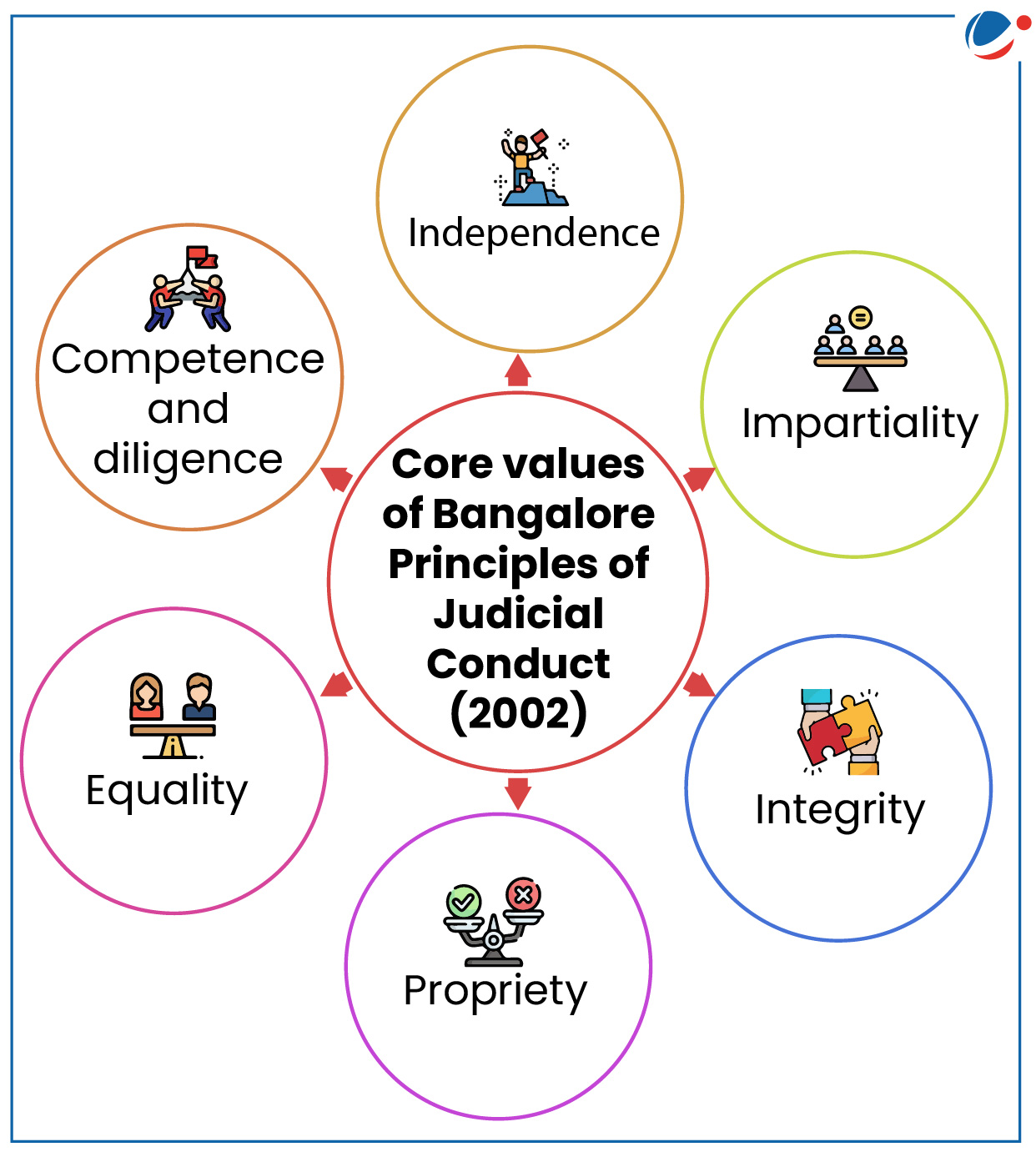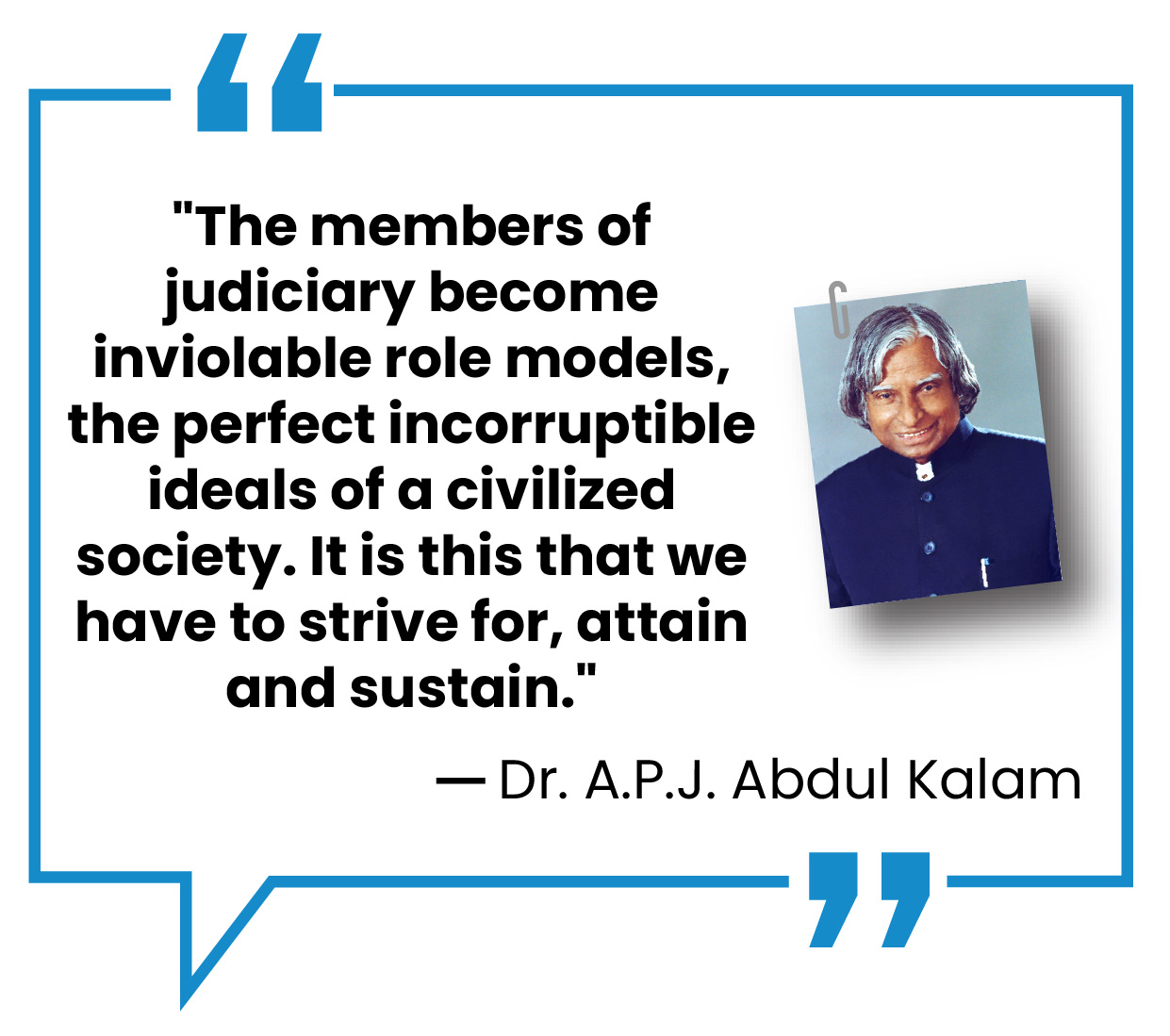Introduction
Recently a Calcutta High Court judge and a senior IPS officer in West Bengal resigned from their posts and joined political parties. This has once again raised questions of propriety about independent functioning of constitutional authorities and bureaucracy and the conflict of interest in their duties.
Different Stakeholders and associated ethical concerns
Stakeholders | Role/ Interest | Ethical Concerns |
|---|---|---|
Judges/ Bureaucrats | Exercise of individual rights, pursuit of political aspirations, desire for public service, etc. | Maintaining impartiality, avoiding conflicts of interest, upholding the integrity of their offices. |
Political Parties | Gaining experienced individuals with governance knowledge, enhancing credibility by leveraging public image of judges/ bureaucrats, etc. | Ensuring no undue influence or favouritism, enhancing trust in public institutions, upholding democratic principles, etc. |
Citizens | Fair and impartial justice system, efficient and politically neutral bureaucracy, safeguarding their rights, etc. | Perception of bias or favouritism in implementation of rule of law, erosion of trust in the institutions, etc. |
Government | Effective implementation of its policies, ensuring credibility of institutions, having independent policy making capability, etc. | Preventing potential/actual conflicts of interest, ensuring fair and impartial adjudication/ administration, ensuring separation of powers, etc. |
Civil Society | Safeguarding public interest, promoting transparency and accountability in governance, etc.
| Ensuring ethical conduct among public officials, raising awareness about potential conflict of interests, etc. |
Ethical implications of judges and bureaucrats joining politics
While there is no constitutional bar on politicians and bureaucrats joining politics, critics argue that they jeopardize the essential principles of judicial independence, bureaucratic neutrality, and public trust in these institutions.
- Separation of powers: Separation of powers is a fundamental principle in democratic governance, wherein the legislative, executive, and judicial branches of government are kept distinct to prevent the concentration of power and keeping checks and balances.
- Conflict of interest: Judges or bureaucrats with political aspirations might be swayed by political considerations while performing their official duties, compromising their autonomy and ability to function independently.
- Since, Government is the largest litigant in court of law, prospects of post-retirement appointments may influence judges in deciding cases against the government.
- Judicial Impartiality: Credibility of the judiciary hinges on public perception of fairness and impartiality. Post-retirement affiliation with a political party creates a strong perception of bias regardless of the judge's actual intentions.
- Judges are sworn to uphold the law without fear or favour, affection or ill-will, rendering decisions based solely on facts and legal principles.
- Bureaucratic neutrality: Political affiliations of public servants can lead to politicization of public services and distortions in implementation of policies, undermining their intended objectives and outcomes.
- Erosion of public trust: Frequent movement between judiciary/bureaucracy and politics can create a perception that these positions are stepping stones for political careers, undermining public trust in institutions.
 Ethical Principles guiding judiciary
|
Way Forward

- Cooling-off Period: It is suggested that there should be at least two years cooling period between retirement and joining politics/other appointments.
- The Election Commission had in 2012 recommended to the Union government to provide for a cooling-off period for top bureaucrats after their retirement before they could join political parties and contest elections. However, the Government had rejected this recommendation.
- Presently, bureaucrats serving in All India Services and Central Service Group 'A' can join any commercial establishment after a cooling-off period of one year.
- The Election Commission had in 2012 recommended to the Union government to provide for a cooling-off period for top bureaucrats after their retirement before they could join political parties and contest elections. However, the Government had rejected this recommendation.
- The Supreme Court had left it for the legislature to determine whether a cooling-off period is required for bureaucrats before they join politics after retirement. As of now, there is also one year of cooling off period for Bureaucrats who wish to join commercial employment (Central Civil Services (Pension) Rules, 2021).
- Code of Ethics for bureaucrats: Prescribe a Code of Ethics, as recommended by the Second Administrative Reforms Commission (ARC - II), which would cover broad guiding principles of good behaviour and governance for public officials.
- Resolving conflict of interest: Public officials and judges should ensure resolution of any conflict of interest that arises during fulfilment of their duties which can be ensured through recusal, divestiture, and disclosure.
- For instance, whenever there is a potential conflict of interest, a judge can withdraw from a case. The practice stems from the cardinal principle of due process of law — nemo judex in causa sua, that is, no person shall be a judge in his own case.
- Another principle guiding judicial recusals is 'justice must not only be done but must also be seen to be done'.
- Netherlands regulates conflict of interest through codes of conduct or codes of standards while France regulates it through mix of laws and codes.
Arguments for cooling-off period
Arguments against cooling-off period
|
Check your ethical aptitudeRecently, a judge of a Supreme Court has resigned from his post to contest election to the Lok Sabha. The concerned judge was associated with major decisions which justified the actions of the government in power. This raised the concerns from opposition parties regarding judicial propriety. On the basis of the above case study, answer the following questions:
|



